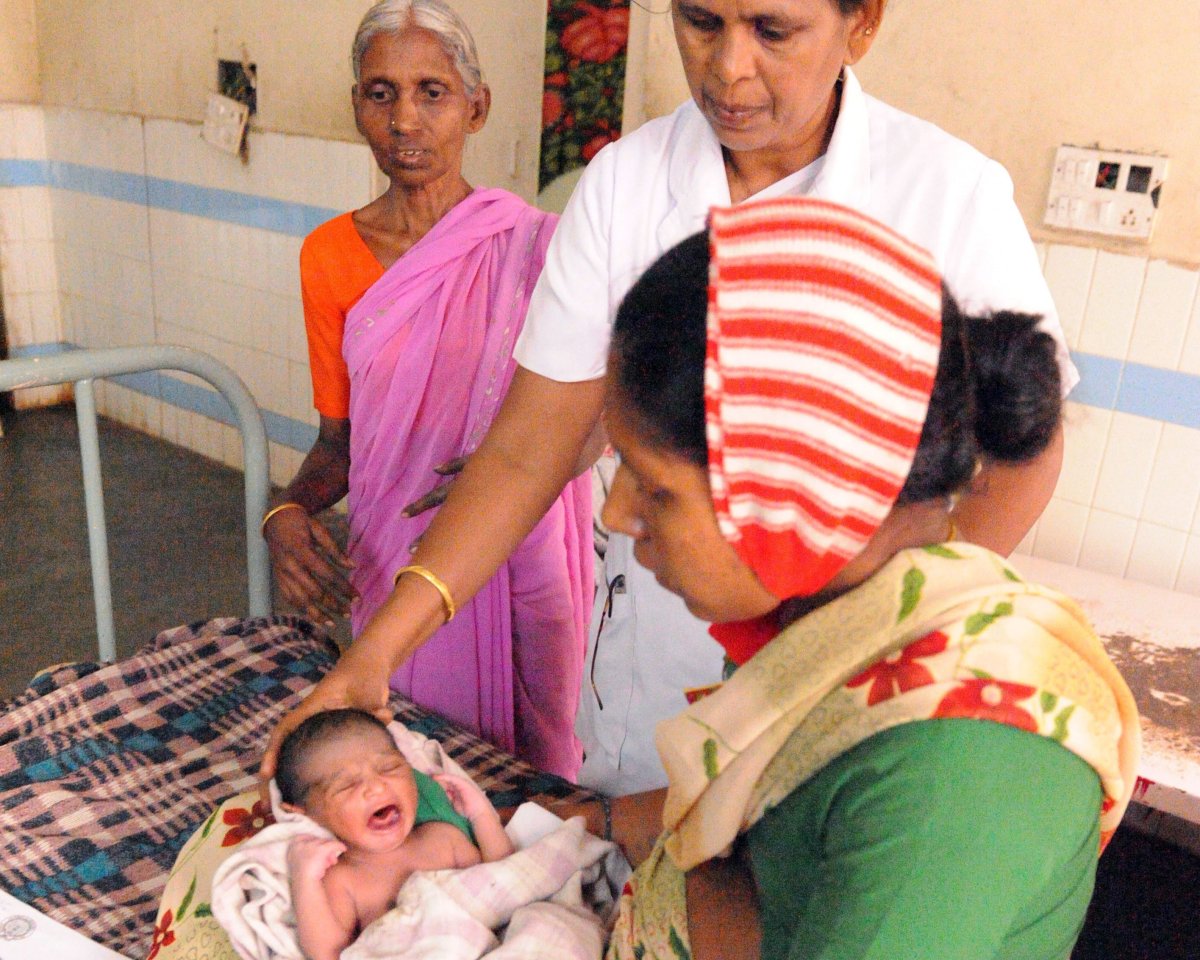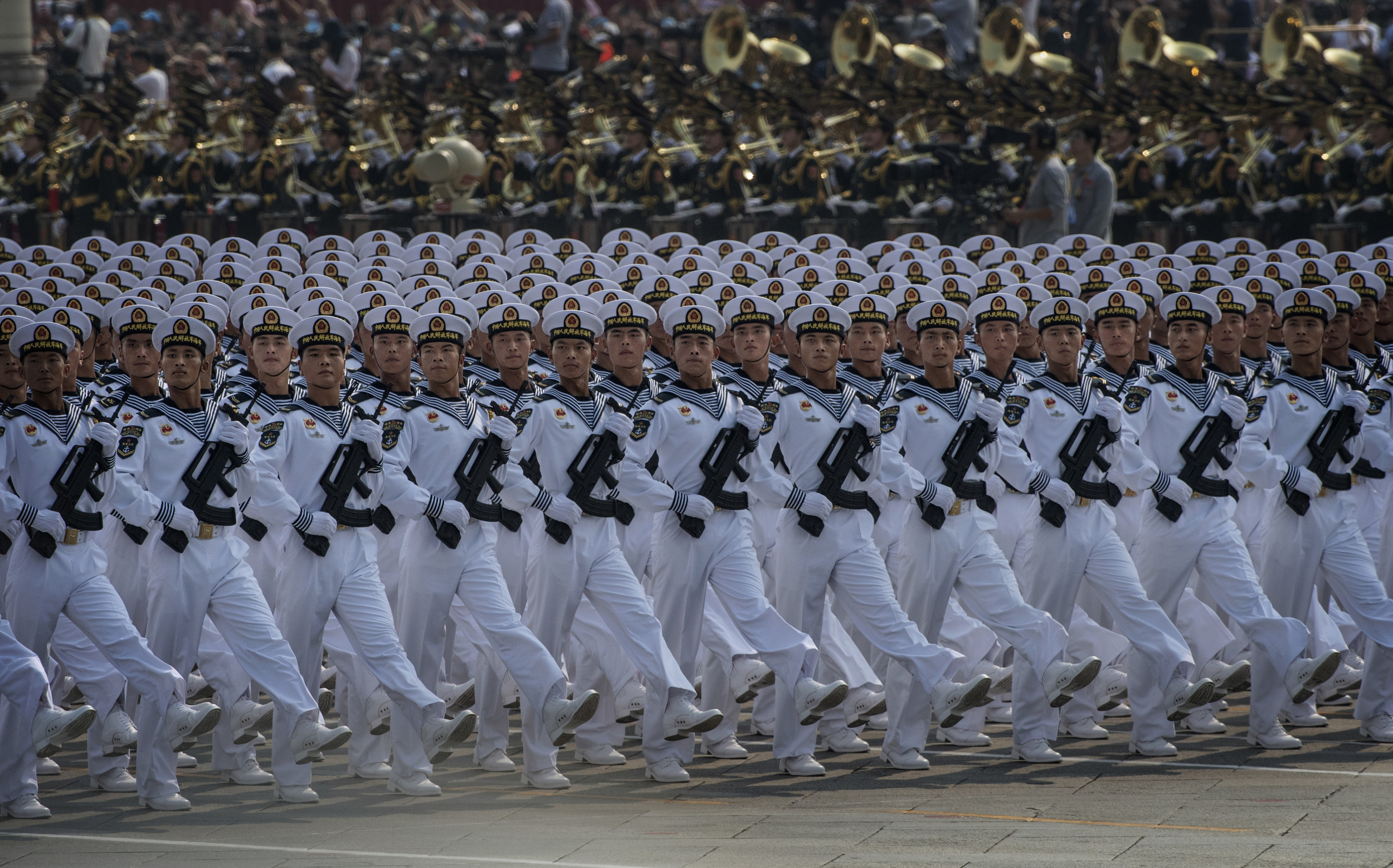Indian women have been urged to have a minimum of two children in a bid to reverse plummeting birth rates and boost the population.
N. Chandrababu Naidu, who is the chief minister of the Andhra Pradesh state, warned of a ticking timebomb as the region is currently failing to reach the "replacement level" for fertility. Fewer children being born now means an increasingly elderly population with a reduced working-age demographic in the future. Having larger families would be "for the greater good," Naidu said, according to India's Hindi-language news channel ABP Live.
India is far from alone in grappling with the thorny population problem. Europe is similarly concerned, with the European Union discussing a report last month that laid bare the strain being placed on welfare systems and public finances with a sharp fall in working-age citizens and a hike in older citizens. The U.S. is facing the same issue, with experts warning of a "silver tsunami" after figures suggested that by 2035 older adults will outnumber children—a first in American history. In the U.K., annual deaths have just outnumbered births for the first time in 50 years (excluding the COVID-19 pandemic).

China's population is also shrinking, while Japan's birth rate continues to nose-dive. North Korea reportedly issues punishments to retailers who sell contraceptives in a bid to tackle its own declining population.
Some countries are bucking the trend, however, with a population surge forecast for Africa. The population of sub-Saharan Africa is projected to double by 2050, according to the United Nations.
The average Indian woman is expected to have 2.0 children in her lifetime, according to Pew Research Center analysis in 2023, much lower than India's birth rate of 3.4 children in 1992. Nevertheless, India overtook China as the most populous country in the world last year, when it reached the threshold of 1.4 billion people in April, according to the U.N.
Naidu is trying to appeal to families living in the state of Andhra Pradesh to have more children. The state's birth rate currently stands at 1.6 live births per woman, well below the replacement level of 2.1.
"South India is witnessing an aging problem," Naidu said, according to news agency PTI cited by ABP Live. "If you give birth to more than two children, then the population will increase.
"This work I am doing [appealing for larger families] is not only for you but also for the nation, for the greater good. We can earn money by doing any work, but we will work only when we have children or when there is a population."
Naidu admitted his appeal was something of an irony, having previously called for smaller families to protect finite resources and build prosperity. He had even barred people with more than two children from standing in local body elections, a policy he abolished in August.
"I recall my past call for population control, stressing the finite availability of land, water, and air resources," Naidu said this week. "People heeded my word and reduced Andhra Pradesh's birthrate within ten years, which now risks the danger of its population falling down completely. We want to go for population management, instead of population control. Now the time has come; every family has to think about how to manage the population, then there will be a future."
Naidu's critics pointed out Naidu himself has not done much to build the population. According to ABP Live, YSRCP leader Jupudi Prabhakar Rao reportedly said of the chief minister: "What about himself? He has only one son, and his son also has only one son. He is a visionary, right?"
Newsweek has reached out to Naidu's office by email seeking further information and comment.




















 English (US) ·
English (US) ·